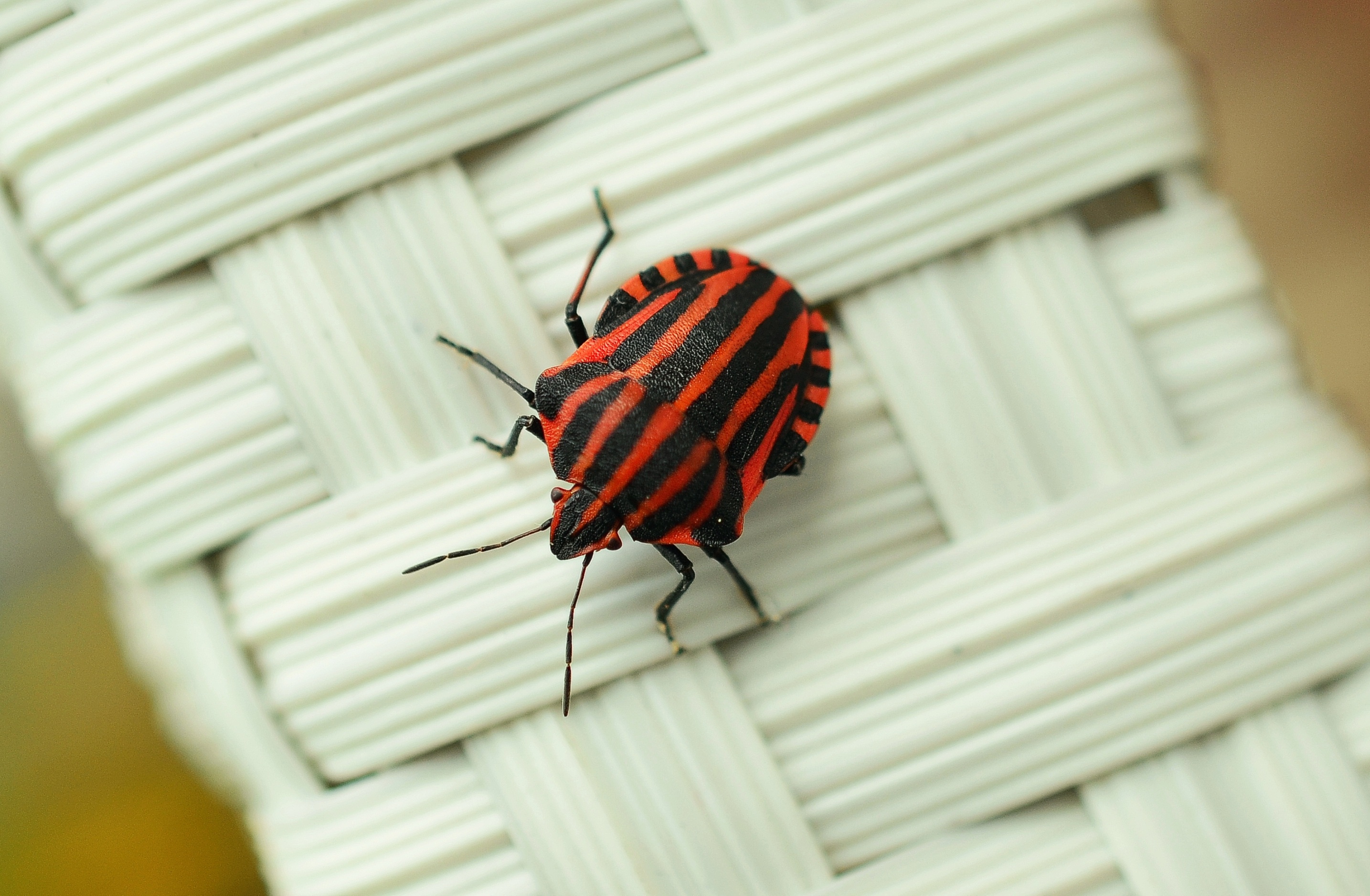Pill bugs, roly polies, chiggy-wigs, potato bugs, and wood lice, are all common names for Armadillidium vulgare, a species of crustacean, more closely related to a lobster than a millipede, and not to be confused with the Pill Millipede (though a quite good example of convergent evolution).
Introduced to the U.S from Europe, genetic studies by Dr. Ronald Garthwaite and co-workers at the California Academy of Sciences show the Mississippi and St. Lawrence Rivers to have been the major routes of pill bug colonization, possibly from lumber brought from Europe in the early 19th century.
Although pill bugs can be useful in the compost pile, eating decaying plant material, they can also be a real nuisance in the garden, especially an organic garden, or raised bed garden that stays moist and uses lots of mulch. Some people swear that pill bugs ONLY feed on dead or decaying material, but with years of gardening experience, I can say they also love tender seedlings and ripening fruit that lies close to the ground. Generally, once the secondary leaves have emerged they will leave a healthy plant alone.
Here are a few ways to keep pill bugs from eating your strawberries and bean sprouts:
- Diatomaceous Earth (DE) is masses of fossilized diatoms that are sharp to insects and deter them from crawling on it. The fine powder absorbs lipids from the waxy outer layer of insects’ exoskeletons, causing them to dehydrate. Arthropods die as a result of the water pressure deficiency, based on Fick’s law of diffusion . Sprinkle around the plants and even on the leaves. Make sure to use food grade DE in your garden and re-apply after rain.
- Promote habitat for garden allies that like to eat roly polies such as frogs, toads, newts, and spiders.
- Keep ducks. Ducks will eat pill bugs, but chickens don’t prefer them.
- Trap and remove them. Here is a technique using cellulose packing peanuts: “My fail proof method is to sprinkle the cellulose packing peanuts (NOT the plastic ones) around on the ground where you’ve seen roly poly bugs (we’ve always called them potato bugs, probably because they roll up in a ball). Overnight, the potato bugs will collect to feast on them and you can just scoop them up and dispose of them.”
- Keep mulch off of seed beds until the secondary leaves have emerged. After the plant is growing well, then mulch around it.
- Another method for trapping them is to place a ripe cantaloupe cut in half, with the hollow side down on the ground overnight. In the morning turn it over and collect the hundreds of pill bugs.
- Increase overall diversity in your garden. Though pill bugs do occasionally eat living plants, more often they eat living plants that are unhealthy or diseased (in other-words, dying). By increasing the population of beneficial insects, you will decrease the population of pests, thus also decreasing the amount of insect damage on your plants.
To find organically grown, local food and much more, visit Pick-A-Pepper.com today!
Similar Stories:
- Sweet Peanuts
- 20 Perennial Crops to Plant Now and Enjoy For A Lifetime.
- Growing Figs In a Temperate Climate
- Five Myths About Food Safety and Home Gardens
- How To Grow Stevia and Make Your Own Extract




